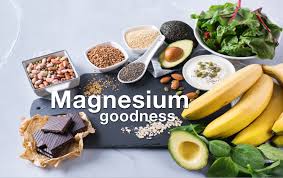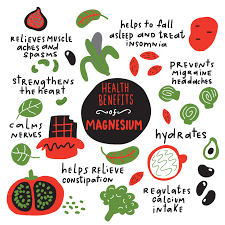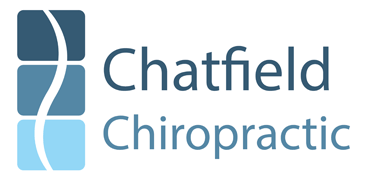Magnesium Post Workout: Does it Help Sore Muscles?
 Exercise is tough, and anybody that says differently obviously isn’t working hard enough. As tough as it is to exercise, it’s an incredibly important to make it part of our lifestyle. One thing that you may have noticed after working out, is that your muscles have become sore and stiff. Sore muscles post-workout is perfectly normal, and it is a sign of a good training session. More often than not, you’ll find that your sore muscles are caused as a result of delayed onset muscle soreness, or DOMS for short. Thankfully, there is strong evidence to suggest that a mineral as basic as magnesium, could work wonders when it comes to post-workout muscle soreness.
Exercise is tough, and anybody that says differently obviously isn’t working hard enough. As tough as it is to exercise, it’s an incredibly important to make it part of our lifestyle. One thing that you may have noticed after working out, is that your muscles have become sore and stiff. Sore muscles post-workout is perfectly normal, and it is a sign of a good training session. More often than not, you’ll find that your sore muscles are caused as a result of delayed onset muscle soreness, or DOMS for short. Thankfully, there is strong evidence to suggest that a mineral as basic as magnesium, could work wonders when it comes to post-workout muscle soreness.
First off, what is delayed onset muscle soreness?
Delayed Onset Muscle Soreness is a perfectly natural process which occurs after strenuous activity. Ironically, DOMS, despite being very painful, is a sign that you did something right whilst training. It is characterized by soreness, tightness, and stiffness in your muscles 24 – 48 hours following a strenuous workout. When you exercise intensely, you’re actually destroying existing muscle tissue by creating microscopic rips and tears in your muscle fibres. This results in the body rebuilding and repairing them even bigger and stronger than they previously were. The downside is the fact that, whilst the process is carried out, you have to experience pain and discomfort. In order to ease post-workout soreness, more and more people are utilizing magnesium.
Does magnesium ease post-workout soreness?
 Lately, more and more people have been utilizing magnesium to help speed up their rates of recovery following a strenuous workout and to ease pain and discomfort. Magnesium is a mineral that plays a vital role in the health of our bones and our muscles. Magnesium has been found to help ease tense muscles and to help them relax, rather than contract constantly whilst you’re recovering. Not only that, but magnesium is also renowned for its anti-inflammatory benefits. After strenuous exercise, inflammation often occurs and can affect the muscles, causing them to become inflamed and sore. As magnesium helps ease inflammation, this is yet another way in which the mineral can help ease post-workout muscle soreness. After a tough workout, many people like to climb into an Epsom salts bath. Despite the name, Epsom salts aren’t actually made from sodium (salt) at all. Instead, they’re made from, you guessed it – Magnesium. Specifically, it’s made from magnesium sulfate. Soaking in an Epsom salts bath will not only ease muscle soreness and stiffness, it will also help to promote a good night’s sleep and help you to relax.
Lately, more and more people have been utilizing magnesium to help speed up their rates of recovery following a strenuous workout and to ease pain and discomfort. Magnesium is a mineral that plays a vital role in the health of our bones and our muscles. Magnesium has been found to help ease tense muscles and to help them relax, rather than contract constantly whilst you’re recovering. Not only that, but magnesium is also renowned for its anti-inflammatory benefits. After strenuous exercise, inflammation often occurs and can affect the muscles, causing them to become inflamed and sore. As magnesium helps ease inflammation, this is yet another way in which the mineral can help ease post-workout muscle soreness. After a tough workout, many people like to climb into an Epsom salts bath. Despite the name, Epsom salts aren’t actually made from sodium (salt) at all. Instead, they’re made from, you guessed it – Magnesium. Specifically, it’s made from magnesium sulfate. Soaking in an Epsom salts bath will not only ease muscle soreness and stiffness, it will also help to promote a good night’s sleep and help you to relax.
How much magnesium do we need?
This mineral plays a role in over 300 physiological processes within the human body, making it important for all around health and wellness. Despite this, many of us don’t get enough magnesium on a daily basis. We’ll look at the signs of a magnesium deficiency a little later on, but for now, let’s take a look at how much we need to consume daily. According to the Food and Nutrition Board, adult men require 420mg per day, whereas adult women require 320mg per day.
How should we ensure we get enough magnesium?
Magnesium deficiencies can be tackled in a variety of different ways. To begin with, you can eat foods rich in the mineral, such as spinach, nuts, seeds, avocados, and other green leafy veggies. You can also consume magnesium supplements, and soak in an Epsom salts bath where it will be absorbed by the body.
What are the signs of a magnesium deficiency?
If you’re worried you might be lacking in this mineral, it’s important to recognise the warning signs early. Some common signs of a magnesium deficiency include:
- Muscle weakness
- Muscle spasms
- Nausea
- Headache
- Fatigue
- Loss of appetite
- Sore and aching muscles
Get in touch with your health professional if you have any of these symptoms & to work out what dose of magnesium would be right for you. You can now book your bookings online via Chatfield Chiropractic website.
